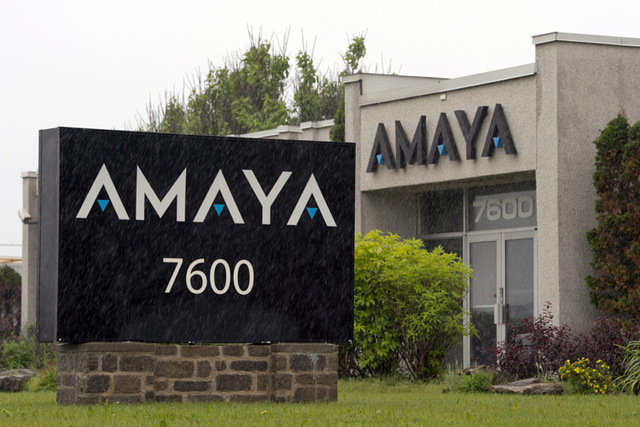PokerStars deal made with eye on California

California is known for having high-priced beachfront real estate. But even $4.9 billion might not be enough of a payment to let a Canadian gaming company settle into the neighborhood.
Montreal-based Amaya Gaming Group Inc.’s agreement last week to acquire the parent company of online gaming giant PokerStars — the largest Internet gaming purchase — is all about California.
Some Golden State residents, however, want to stop the moving vans at the Canadian border.
Despite its best efforts — including forfeiting $731 million to federal prosecutors in 2012 — PokerStars hasn’t been able to buy into the budding U.S. online gaming market.
Nevada shut PokerStars out of the game for at least five years. New Jersey initially said no, but might be softening its position now that Amaya plans to clean house of PokerStars ownership once it takes over in September.
Lawmakers are considering legal Internet poker. Twin pieces of legislation are being debated in the state’s Assembly and Senate in Sacramento, Calif.
The Golden State, whose economy would be the world’s eighth-largest if it were a country, is considered the nation’s top legalization target by the online gaming community.
California has already flexed its muscles in Indian gaming. The state’s tribal casinos produced $6.96 billion in gaming revenue in 2012, according to Casino City’s annual report, which was almost one-fourth of the total collected by Indian gaming nationwide.
PokerStars — along with its affiliated Full Tilt Poker — controls 54 percent of global online gaming traffic outside the United States. Combined, the websites have more than 85 million registered players. There are millions more potential customers in the United States who haven’t been able to log onto PokerStars since 2011.
Amaya said the combined businesses would have totaled $1.3 billion in revenue in 2013, with PokerStars accounting for more than $1.1 billion of the figure.
That’s one reason the competition would like to keep PokerStars from entering the game.
PokerStars has been sidelined by the hangover from the “Black Friday” federal crackdown on illegal Internet gaming in April 2011. PokerStars pulled out of the U.S. after its founder and two other company officials were indicted in connection with fraud and 15031-laundering charges.
The indictments still stand against the individuals. But the company’s cash forfeiture 16 months after the indictments settled PokerStars’ legal differences in connection with accepting online wagers from American gamblers following the 2006 passage of the Unlawful Internet Gambling Enforcement Act.
The Justice Department said the agreement wouldn’t preclude PokerStars from entering legal U.S. online gaming markets.
Individual states don’t see it that way.
Nevada’s interactive gaming regulations include a “bad actor clause” that puts a five-year ban on companies that took bets from Americans after 2006. New Jersey’s Internet gaming laws don’t include the “bad actor clause,” but PokerStars couldn’t get licensed.
Meanwhile, California’s online poker bills include “bad actor” clauses that aim directly at PokerStars. The company has a deal to operate online poker for three Southern California card rooms and the Morongo Band of Mission Indians. However, 13 other Indian tribes are backing the legislation as written.
PokerStars asked Harvard Law School professor Laurence Tribe, who specializes in constitutional law, to review California’s proposed online poker legislation. In a statement Tuesday, Tribe concluded that neither bill would survive a constitutional challenge on several grounds.
“A court should also have little difficulty recognizing the harm to PokerStars’ intangible property, including harm that takes the form of rendering that property valueless as an object of sale or licensing to others,” Tribe said.
In its announcement about buying privately held Oldford Group — parent company of PokerStars owner Rational Group — Amaya was hopeful the deal would facilitate entry into the United States.
Amaya, publicly traded on the Toronto Stock Exchange, is a New Jersey-licensed service provider.
PokerStars has an agreement to be the online gaming partner with Resorts Atlantic City. The deal may see new life, mainly because of the state’s online gaming revenue not reaching lofty projections and declining for the second straight month in May.
David Rebuck, New Jersey’s gaming enforcement director, said regulators were “encouraged” by Amaya’s purchase of PokerStars “and the expanded opportunities it might provide.”
Eilers Research gaming analyst Adam Krejcik told investors Tuesday that the deal should land PokerStars in New Jersey. But he predicted California will continue to hang out a “No Vacancy” sign.
Howard Stutz’s Inside Gaming column appears Wednesdays and Sundays. He can be reached at hstutz@reviewjournal.com or 702-477-3871. Follow on Twitter: @howardstutz.












